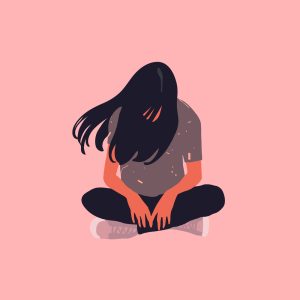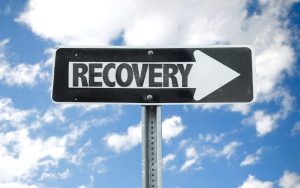I. Introduction
Mental health is an essential component of overall well-being, yet it remains a topic often surrounded by stigma and misunderstanding. In recent years, the importance of improving mental health has gained recognition, prompting active research in various fields, such as education and occupational therapy. For instance, action research in higher education reveals that by examining their teaching practices, educators develop a deeper understanding of both their pedagogical approaches and their students needs, ultimately enhancing mental health awareness within educational settings (Caruana et al., 2005). Similarly, studies focusing on harm reduction strategies highlight the capabilities of occupational therapy interventions to foster positive health outcomes for individuals facing mental health challenges (Hellman et al., 2013). These insights underscore the necessity of a proactive approach to mental health improvement, advocating for personal reflection, community support, and targeted intervention strategies to foster resilience and personal growth in individuals across diverse environments.
A. Definition of mental health
Mental health encompasses a multifaceted spectrum of emotional, psychological, and social well-being, influencing how individuals think, feel, and interact with others. It is crucial for coping with the stresses of life, making choices, and forming relationships. In recent literature, resilience has emerged as a pivotal concept within the context of mental health, illustrating how individuals navigate adversity. Resilience is characterized by the ability to utilize protective factors that mitigate risks of mental illness, ultimately leading to more favorable outcomes than initially anticipated (Stainton A et al., 2018). Furthermore, studies indicate that resilience in mental health professionals can enhance their capacity to manage stressors and prevent burnout, contributing positively to their overall mental health (Foster K et al., 2018). Understanding mental health not only involves recognizing its definition but also appreciating how resilience plays a critical role in promoting psychological well-being and aiding recovery.
B. Importance of mental health in overall well-being
Mental health plays a pivotal role in determining overall well-being, influencing not only emotional stability but also physical health and social functioning. Negative mental health conditions, such as depression and anxiety, can impair daily functioning and reduce quality of life, leading to various physical health issues and diminished productivity. For instance, a study highlighted the significance of life review interventions among older adults, demonstrating notable improvements in depression and resilience, which underscores the necessity of addressing mental health issues to enhance overall well-being (Pathrose SI et al., 2025). Furthermore, mental wellness is crucial among professionals; teachers in Malaysia experience high levels of stress that adversely affect their mental health, thereby eroding their effectiveness in educational roles and overall life satisfaction (Alzahari N et al., 2025). Consequently, prioritizing mental health not only fosters individual well-being but also contributes to healthier communities and more effective interpersonal relationships.
One of the biggest issues is mental health is bypassed and stigmatized. Physical health issues take front stage while mental health is ignored and stigmatized as crazy. When someone takes a blood pressure pill for life, it is does not even raise an alarm, but if someone takes a medication for anxiety or depression, individuals become labeled. The reality is mental health is health. Mental health issues do not make you crazy but human. Individuals suffer from a variety of mental health issues that stem from the brain and neurotransmitters. These imbalances are no different a health issue as high sugar or high cholesterol. They are all issues that need addressed. Bypassing, neglecting or being embarrassed of these issues can only cause longer term damage to one’s overall wellness of life. Hence it is important to champion one’s mental health as overall health and dismiss the past comments about mental health medications or images associated with mental health issues.
C. Overview of strategies for improvement
In the pursuit of improved mental health, various strategies can be implemented to foster emotional and psychological well-being. One effective approach is the development of emotional intelligence (EI), which has been shown to enhance resilience and coping mechanisms by improving self-awareness and interpersonal relationships. Incorporating programs and workshops aimed at EI development can help individuals navigate stressors more effectively, ultimately leading to better mental health outcomes (Kazachuk et al., 2024). Another valuable strategy is the practice of yoga, which contributes significantly to stress reduction and emotional regulation. Research indicates that regular yoga practice enhances the nervous systems adaptability, fostering resilience and improving cognitive functions (Biesok et al., 2024). By combining these strategies, individuals can cultivate a holistic approach to mental health improvement, which is not only beneficial on a personal level but also contributes to healthier communities overall.
II. Understanding Mental Health
Understanding mental health is crucial for fostering comprehensive approaches to improving overall well-being. Mental health encompasses emotional, psychological, and social dimensions, significantly influencing how individuals think, feel, and interact with others. The intersection of physical activity and mental health represents a particularly complex relationship where engaging in exercise may enhance psychological functioning; however, the direction of this causality remains ambiguous (Asztalos et al., 2010). Moreover, the physical environment contributes substantially to mental health outcomes, as urban planning can either facilitate or hinder access to spaces that promote active lifestyles and social interactions (Allaert et al., 2012). Recognizing the multifaceted influences on mental health, including the roles of personal motivation, social support, and environmental factors, allows for targeted strategies. Thus, a holistic understanding of mental health is essential not only for personal development but also for informing community initiatives aimed at enhancing mental well-being.
A. Common mental health disorders
Understanding common mental health disorders is crucial for improving overall mental health and well-being. Disorders such as depression and anxiety affect millions globally, with research indicating that mental disorders impact over 25% of the population worldwide, including a notable prevalence of 14.9% in India, which is exacerbated in rural areas where stigmatization persists (S Nagar et al., 2025). These conditions can severely hinder an individuals ability to function in daily life, necessitating effective treatment strategies and increased awareness. Mental health education plays a vital role in fostering understanding among patients, leading to improved coping skills and enhanced quality of life (Irawan B et al., 2024). It is imperative that healthcare systems broaden their focus to include mental health education and integrated care, particularly in underserved areas. By addressing the knowledge gaps and supporting patients through education, societies can make significant strides in destigmatizing mental health and improving treatment outcomes.
As stated, depression and anxiety are common in within the population. Many individuals find themselves taking SSRI to help balance serotonin, or taking various anxiety medications such as Ativan to help regulate anxious thoughts. But while these are common, like other more serious physical ailments, there are more serious mental health disorders. Some individuals require mood stabilizers, anti-psychotics, and other drugs to help maintain health clarity. This is not because they are bad people, or crazy but because their bodies require certain medications to help balance an issue. Neglected health leads to serious consequences, especially in mental health. Take your mental health disorder seriously and you will find a higher quality of life.
B. Signs and symptoms of poor mental health
Identifying the signs and symptoms of poor mental health is crucial for early intervention and effective management. Common indicators include persistent sadness, changes in appetite or sleep patterns, withdrawal from social interactions, and difficulty concentrating. These symptoms may signal underlying issues such as anxiety or depression, which can be exacerbated by a lack of support and proper resources. Recognizing these symptoms allows individuals to seek help proactively, thus mitigating further distress. Psychoeducational interventions (PIs), while primarily a preventative measure, play a significant role in enhancing awareness around these signs among adolescents, fostering improved communication and understanding of mental health issues within families and communities (Jones B et al., 2017). Encouraging the use of mobile technology, such as smartphones for accessing mental health resources, integrates modern solutions into traditional methods, potentially improving treatment outcomes and accessibility for those struggling with mental health concerns (Susick et al., 2011).
C. The impact of mental health on daily life
Mental health significantly influences daily life, intertwining with various aspects such as relationships, work performance, and personal satisfaction. Individuals struggling with mental health issues often encounter challenges in maintaining social connections and achieving productivity, leading to feelings of isolation and decreased quality of life. According to research on visually impaired older adults, a notable relationship exists between mental health, problem-solving abilities, and life satisfaction, indicating that psychological and socio-cognitive factors are crucial for navigating daily challenges (Carrieri et al., 2017). Furthermore, integrating health-related quality of life assessments into clinical care has been suggested to enhance the recognition of underlying psychosocial problems, although evidence supporting its efficacy remains mixed (Gilbody et al., 2002). Consequently, addressing mental health proactively not only fosters emotional well-being but also bolsters overall life satisfaction, prompting a more fulfilling daily existence.
III. Lifestyle Changes for Better Mental Health
To improve mental health effectively, adopting specific lifestyle changes is essential, particularly those that enhance physical well-being, such as regular exercise and proper sleep hygiene. Engaging in physical activity has been shown to increase endorphin levels, thereby improving mood and reducing symptoms of anxiety and depression. For example, a study involving premenopausal women demonstrated that osteogenic exercises not only improved bone health but also enhanced quality of life and mental health metrics among participants, with a reduction in those falling below population health norms for mental well-being post-intervention (BABATUNDE et al., 2016). Additionally, prioritizing sleep is crucial for overall mental health, as disrupted sleep patterns can exacerbate stress, anxiety, and depressive symptoms. Research has found that implementing healthy sleep habits significantly contributes to improved sleep quality, which in turn plays a vital role in strengthening emotional resilience and cognitive function (Bednarz et al., 2024). Therefore, integrating these lifestyle modifications can lead to substantial improvements in mental health and overall well-being.
Life style changes in addition to medication sometimes are necessary for mental health. Addictions, bad situations, poor friend circles, and other social situations can trigger mental health issues. Like any health condition, individuals with poor mental health must take the appropriate steps to become healthy. This is not only essential for their own well-being but also for their family and friends. Poor mental health leads to destructive behaviors and this destroys families and social bonds. Hence, to preserve and improve mental health, it is critical to not only take necessary medications but to explore other life styles that promote better mental health.
A. The role of physical exercise
Engaging in physical exercise plays a crucial role in enhancing mental health, functioning as a powerful mechanism for promoting cognitive function and emotional well-being. Regular physical activity is associated with decreased risks of chronic conditions such as cardiovascular disease and cognitive decline, significantly influencing overall mental resilience. Research indicates that exercise enhances neuroplasticity, the brains ability to reorganize and adapt, thereby fostering cognitive improvements in attention, memory, and executive functions (Do Jłęga et al., 2024). Moreover, innovative interventions, such as multimodal programs that incorporate cognitive training, emotional tasks, and physical activity, have been shown to alleviate symptoms of anxiety and depression, particularly in individuals recovering from conditions like Post-COVID-19 (Cano N et al., 2024). Through its multifaceted benefits, physical exercise emerges as a vital component of mental health strategies, underscoring the necessity for individuals to incorporate regular activity into their lives as a means to bolster their cognitive and emotional health.
Also, be sure to get plenty of sun and fresh air. Sometimes the body needs more than healthy diet, but also healthy exposure to nature, the sun and air. If work is stressing you, look into nature and hiking to find balance.
B. Importance of a balanced diet
The importance of a well-rounded diet in supporting mental health can’t be overstated; it has a direct impact on how the brain functions and, relatedly, on a person’s emotional state. Foods packed with nutrients offer the vital ingredients needed to keep cognitive functions running smoothly, including both mood and the ability to handle stress. Studies repeatedly show that a diet filled with fruits, vegetables, whole grains, and healthy fats is good for mental health. This is because these foods offer crucial nutrients that help neurotransmitters be produced and remain stable. On the other hand, it’s worth noting that a diet heavy on processed foods and sugars might create imbalances that could worsen anxiety and depression symptoms, showing a definite connection between what we eat and how we feel. As a result, adopting a balanced diet is not just a physical health matter, generally speaking, but a really important way to build emotional strength. This makes food choices a key part of therapies for mental health issues, as recent studies suggest (Pandey P et al., 2024) (Sharma S, 2024).
C. Benefits of adequate sleep
Getting enough sleep is really important for your mental health; it’s like a base for how well you handle your feelings and think clearly. Research shows that when you don’t sleep well, things like anxiety and depression can get worse, which isn’t good for your general health. Good, regular sleep can really help you handle stress better; for instance, studies have found that things like mindfulness can make you less depressed and improve your sleep, even if you’re generally healthy (Akter M et al., 2025). Also, there’s some new evidence suggesting that probiotics could help you sleep better, which could also help your mental health (Martyka A et al., 2024). What’s more, when you sleep well, you tend to make better decisions and are generally happier with your life, showing just how crucial sleep is for thinking straight and managing your emotions. So, making sure you get enough sleep is key to improving your mental health, and it’s a pretty easy but effective way to feel better overall.
Sometimes its more than just rest and sleep, but when to cut back from something. Whether work, school or family, stress can over bear the system. Knowing when to find rest is critical to mental health. A time out, grounding and prayer or meditation can make a big difference in resting the mind.
IV. Mindfulness and Stress Management Techniques
Strategies centered around mindfulness and stress management are now recognized as central to improving mental well-being. Practices that cultivate mindfulness, for example, meditation and focused breathing, guide people toward present-moment awareness, which aids in stress reduction and supports emotional stability. Studies indicate that when mindfulness is incorporated into schools, young people benefit because they learn better stress management and develop improved coping strategies (Sapthiang et al., 2019). These methods not only help instill a sense of tranquility, but they also refine peoples ability to interact with others, boosting their social competence. Furthermore, the techniques are adaptable, so people facing various types of daily pressures can use them. Heightened awareness of mental health issues means that mindfulness, integrated within communities and schools, could provide a solid base for encouraging resilience and overall wellness across diverse groups (Baskin-Sommers et al., 2016). Therefore, adopting mindfulness might well serve as a cornerstone of efforts aimed at enhancing mental health.
A. Introduction to mindfulness practices
The value of mindfulness practices in boosting mental health is now widely acknowledged. These practices empower people to develop both awareness and presence in everyday life. Activities like meditation, yoga, and even sophrology can all play a role in stress reduction and promoting better emotional well-being. The COVID-19 pandemic really shined a light on the importance of these tools, with young folks, particularly university students, experiencing increased anxiety stemming from uncertainty and social isolation. Research suggests that consistently participating in mindfulness can substantially decrease stress and boost resilience—something absolutely crucial for navigating life’s curveballs (Denis B-M et al., 2024). Moreover, incorporating mindfulness into schools can help cultivate a setting where people not only learn stress management but also see improvements in their engagement and performance overall (N/A, 2025). By prioritizing mindfulness, we can equip ourselves to better handle the challenges of modern life while also taking care of our mental health.
B. Techniques for effective stress management
For the sake of mental health and all-around well-being, especially when the heat is on, good stress management is key. You’ll find things like mindfulness meditation, cognitive behavioral therapy, and, yes, even regular exercise, can really make a difference in bringing stress levels down. Mindfulness, for example, helps people get to know themselves better, which means they can handle their emotions and cut down on anxiety (Júlia Kafková et al., 2025). Also, when organizations, especially in tough fields like healthcare, get smart about how they’re set up, they can do a lot to help manage stress. Setting up systems that use, say, predictive models to figure out stress levels can help them give targeted support to their people, leading to a healthier place to work (Nag M et al., 2025). When you put personal strategies together with support from the organization, people can come up with full-on stress management plans that not only take care of immediate problems but also build up long-term mental health. This kind of well-rounded approach lets people deal with daily stress like a boss, which boosts their overall quality of life.
One cannot under emphasize the importance of reducing stress for overall mental health. Knowing when to engage or not, to put down or face, is key a decision in one’s mental and emotional health. Please also review AIHCP’s Stress Management Consulting Certification by clicking here
C. The role of meditation in mental health
Meditation is now seen as a really important way to help our minds and feelings stay healthy. It helps us pay attention to ourselves and the world around us, which then makes it easier to handle stress, worry, and other emotional problems. Studies have shown that when people meditate, especially using mindfulness techniques, they often feel less anxious and depressed. For example, programs like the EscapeCovid Game, which aim to help people understand mental health better, have found that meditation can help people control their emotions and deal with difficult situations, especially during the COVID-19 pandemic (D Labrosse et al., 2025). Also, when researchers have looked at many studies on meditation, they’ve found that it can be useful for managing anger at work, which suggests that meditation could make people more emotionally stable and improve their relationships with others (MOTIRAMANI SS et al., 2025). So, if people make meditation a part of their everyday lives, it could be a practical way for them to feel better mentally and become stronger in the face of life’s difficulties.
V. Conclusion
To summarize, a comprehensive strategy for improving mental health necessitates not just effective treatment but also well-coordinated care systems and active community involvement. For example, the successful transition of young people from residential mental health facilities highlights the need for coordinated care systems that address all aspects of an individual’s well-being (Cameron et al., 2012). The frequent co-occurrence of mental health and substance use disorders further emphasizes the need for strategies that can simultaneously manage various health issues. Studies suggest that poor coordination leads to fragmented care and, often, increased use of emergency services, which underscores the importance of integrated care programs designed to promote effective treatment pathways (Hale et al., 2019). Prioritizing collaboration among healthcare professionals and ensuring access to personalized mental health services can make better mental well-being more achievable for those who need it, thereby contributing to healthier communities.

A. Recap of key strategies for improving mental health
When it comes to boosting our mental health, there are definitely some strategies that stand out. For example, building strong social connections is super important for staying emotionally resilient; good relationships can really help when things get tough. Also, exercise is great for your mood and can help with anxiety, which shows how connected our bodies and minds really are. Mindfulness and meditation can also make a big difference by helping us feel more aware and less stressed, leading to a more balanced state. Plus, it’s crucial to tackle systemic issues in mental health care; effective solutions need to ensure everyone has fair access, especially folks from marginalized communities. It’s been noted that improving support for specific groups mirrors the need for complete mental health plans that focus on individual wellness but also get communities involved and push for lasting change (Adelman et al., 2018), (Adelman et al., 2018).
B. Encouragement to seek professional help when needed
Generally speaking, improving mental health often calls for changing how society views getting help. Research shows that better mental health literacy (MHL) can really cut down on the stigma around mental health services, which, in most cases, leads to people seeking help sooner. For instance, studies have shown that students who know more about mental health are less likely to feel ashamed about seeking help, underscoring the importance of integrating mental health education into curricula, particularly in secondary schools (Sokolov Lá, 2024). Also, programs that try to reach groups that are usually hard to reach, like male students, show that using informal support and customized messages can help them accept mental health resources (I Sagar-Ouriaghli et al., 2023). By encouraging a culture where people feel okay about seeking professional assistance without worrying about being judged, we can boost community well-being and make sure mental health resources are used well.
C. Final thoughts on the importance of prioritizing mental health
To summarize, attending to mental well-being transcends individual concerns, evolving into a societal requirement that markedly boosts overall health. Studies, such as those (Miller et al., 2024) noting the stigma around mental health in professions like nursing, emphasize the importance of deploying supportive measures to lessen stress and burnout. A comprehensive strategy—incorporating mindfulness, mutual support, and self-care—can significantly elevate individual and communal mental health results, thus forging a healthier workplace and society. Furthermore, raising awareness about mental health helps dissolve stigmas, thereby encouraging people to seek assistance without dreading disapproval (Fischbacher-Smith et al., 2016). By valuing mental health, we foster resilience, promote emotional wellness, and enrich our lives, reaffirming the need to integrate mental health into daily priorities.
Additional AIHCP Blog: Fear and Grief. Click here
Additional Resources
Tartakovsky, M. (2025). “8 Daily Habits to Boost Mental Health — and Signs It May Be Time to Get Support”. Healthline. Access here
Morin, A (2025). “10 Ways to Improve Your Mental Health Without Therapy”. Psychology Today. Access here
Wolters, C (2025). “9 Daily Habits to Boost Your Mental Health”. U.S News. Access here
“Emotional Wellness Toolkit — More Resources” NIH. Access here


















 By Lucy Peters
By Lucy Peters